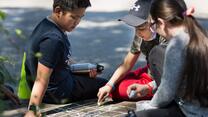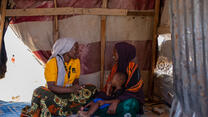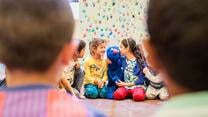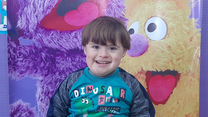The Healing Hands project of the International Rescue Committee seeks to support the comprehensive development, care and protection of migrant boys and girls and members of the host community from 0 to 5 years old in Ecuador. Healing Hands implemented a model that addresses the economic needs and responsibilities of caregivers, strengthening income generation strategies and creating community play and learning spaces to strengthen motor, cognitive, language skills and social-emotional learning through play during early childhood.
Healing Hands developed methodologies that can be adapted to different contexts even after its implementation, focusing on the design of the program based on evidence and the needs of people, with a focus on innovation. Among the successes of Healing Hands are the Methodological Box and the Traveling Play and Learning Suitcase that provide pedagogical resources to caregivers and educators to promote effective practices in the care and development of boys and girls.
After the initial implementation of Healing Hands, the International Rescue Committee (IRC) developed a report with reflections and learnings that organizations can replicate, available here.
The IRC team and implementing partners delivered play suitcases in community spaces and trained technical teams and educators in the didactic use of these materials to help stimulate the linguistic and holistic development of boys and girls. In addition, the implementing team prioritized access to information for caregivers, promoting informed decision-making (in aspects such as regularization, access to health and education services, among others) and the creation of positive parenting skills for development from the first years of life.
During its implementation, Healing Hands also had a focus on community child care homes, which are a valuable modality to improve access to early childhood development services in Ecuador. This project concluded with positive results, with the participation of 4,000 families and resulting in the creation of 28 community spaces for play and learning thanks to the support of the Conrad N. Hilton Foundation and the collaboration between the International Rescue Committee (IRC) and partner organizations such as the Centro de Desarrollo y Autogestión (DYA), Fundación de las Américas para el Desarrollo (FUDELA) and Fundación Alas de Colibrí.
“I have improved my discipline practices. I no longer resort to screaming. I also know how to establish a consistent bedtime routine and create habits across the board.” - Participant in the program
In addition to the report, the IRC makes the following audiovisual resources available:



